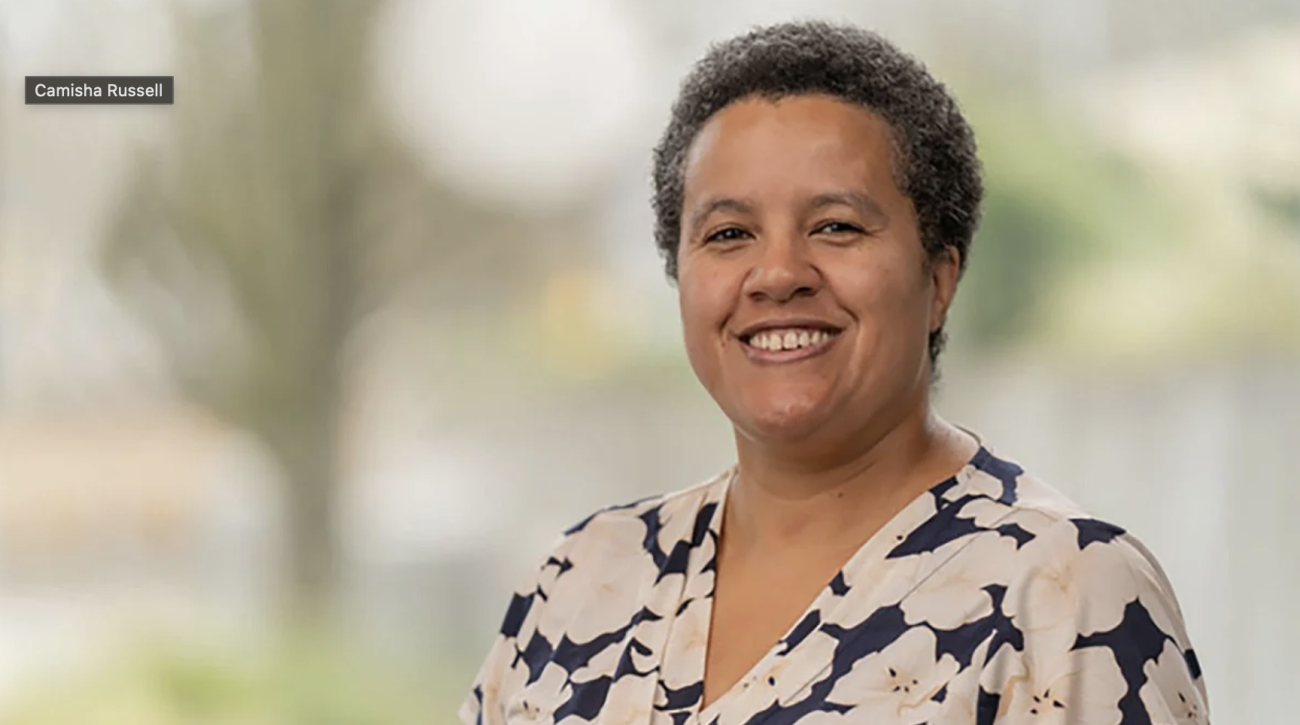
From Around the O—Camisha Russell, an associate professor of philosophy in the College of Arts and Sciences at University of Oregon, has been named a Mellon Foundation New Directions Fellow for 2024.
Each year, approximately 12 scholars are selected for the prize, and Russell is the UO’s first faculty member to receive this honor.
Russell’s winning project proposal, "Reckoning with Foundational Sins: A Philosophical Inquiry into Blackness and Indigeneity in the US Nation,” is a plan to explore philosophically the relationship between Blackness and Indigeneity in the settler colonial nation of the U.S.
Her focus is on the founding “sins” of the country — the genocide and dispossession of Native Americans and the kidnapping and enslavement of native Africans — and how those acts must be understood to answer the question of how to move toward justice for who live here.
“Ultimately, I see having won the fellowship as offering me the time and space to approach my new research area with respect and humility,” she said. “My learning begins in Bodo, Norway, for the annual conference of the Native American and Indigenous Studies Association. It’s been a long time since I went to a full conference where I was not presenting research of my own. It feels like a great luxury and a priceless opportunity, and a great way to kick off my Mellon year.”
The New Directions Fellow program recognizes scholars whose work will benefit scholarship in the humanities and include the highest standard in cross-disciplinary research, according to the organization.
"At a moment when efforts are being made throughout our country to restrict and control the way U.S. history should be taught in public schools and universities and when the need to advance social justice has become particularly acute, Professor Russell’s goals to better understand the relations between the U.S.’ two ‘founding sins’ of slavery and genocide and to work toward a more just future are not only timely but urgent,” said Paul Peppis, Professor Emerit of English and former director of the Oregon Humanities Center
The area of research is new for Russell, having focused on race as a political and social concept in her previous work. With the fellowship funding, Russell plans to spend structured, extended time in Indigenous studies.
She will develop relationships and build trust with conversation partners in different disciplines who can critically evaluate her work, collaborate with her in the future, and investigate her own family history with respect to white, Black and Native legacies on American soil.
To help her complete her project, the fellowship awards her the equivalent of one academic year's salary, two summers of additional support, and tuition,l course fees or equivalent direct costs associated with the fellow’s training programs.
—By Jenny Brooks, College of Arts and Sciences

